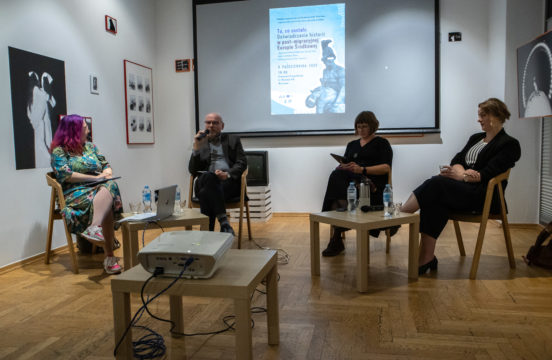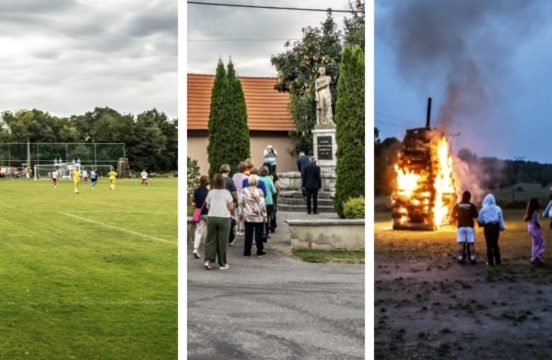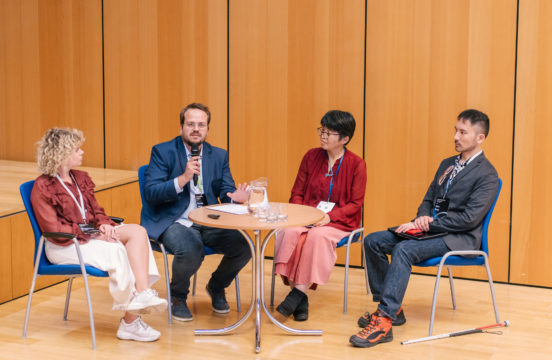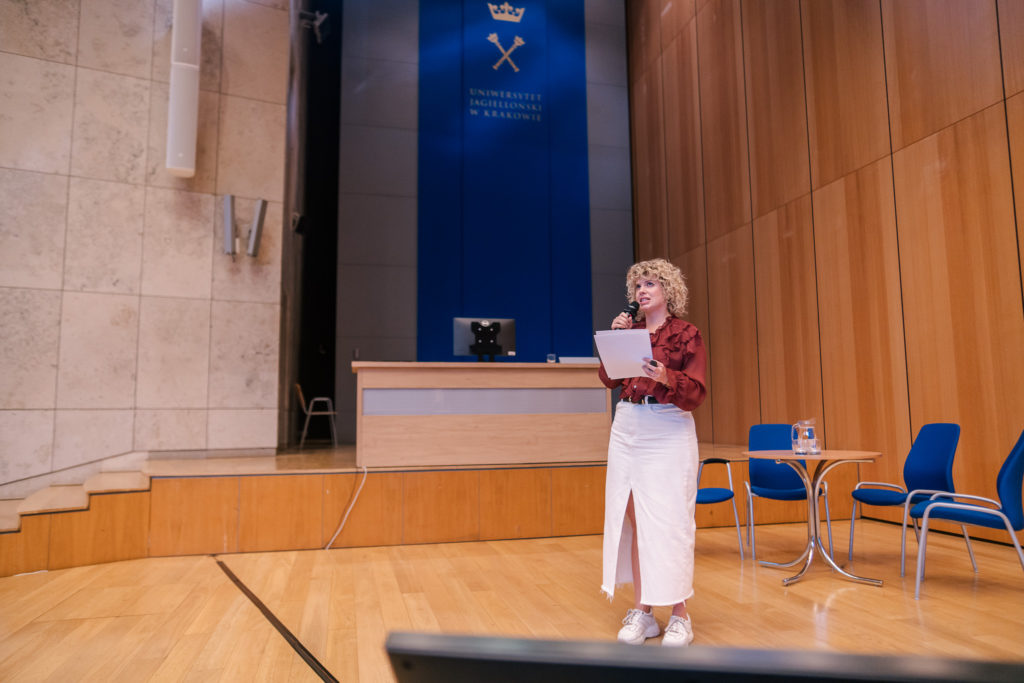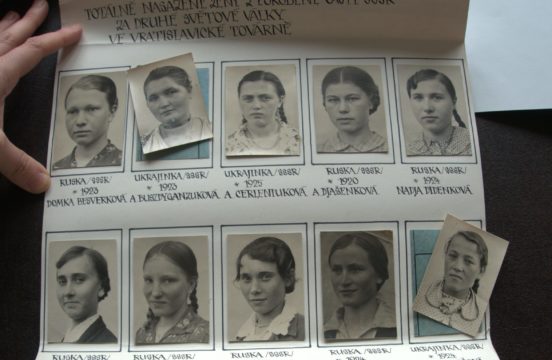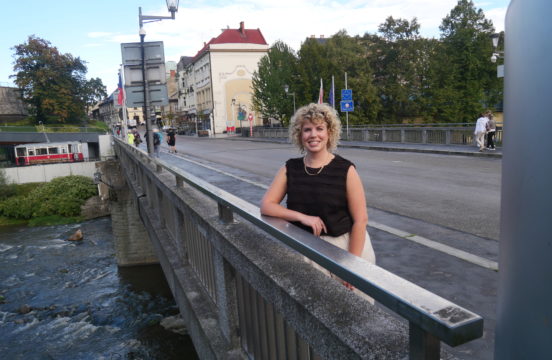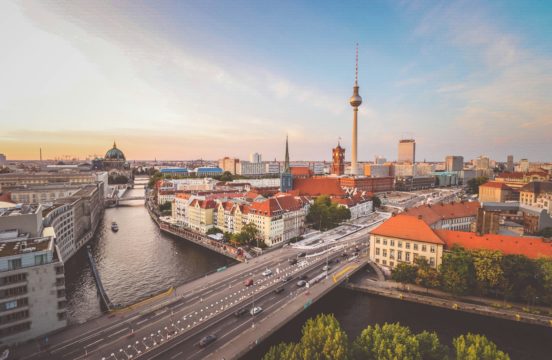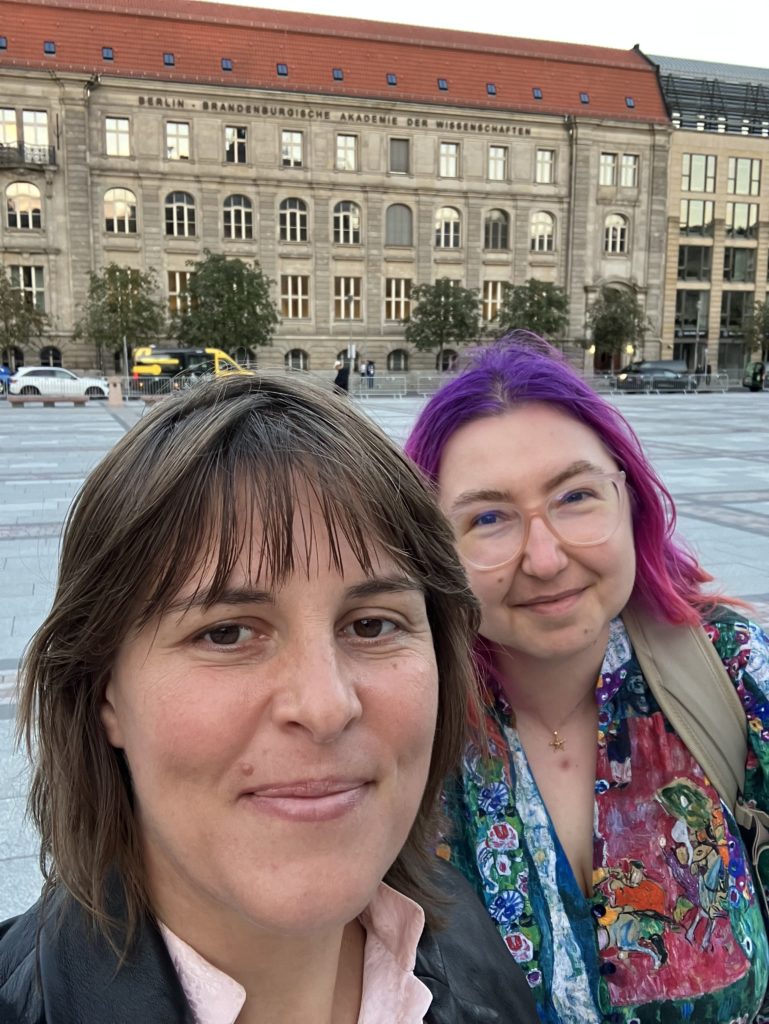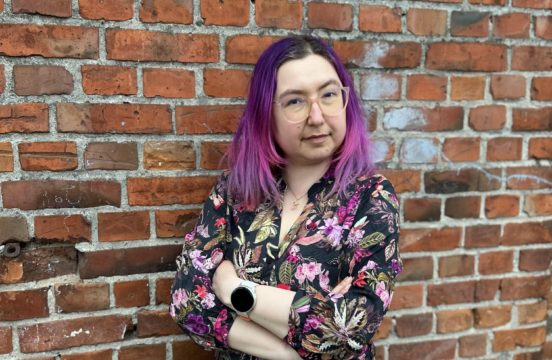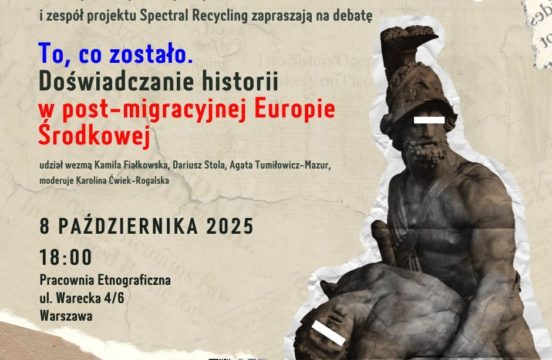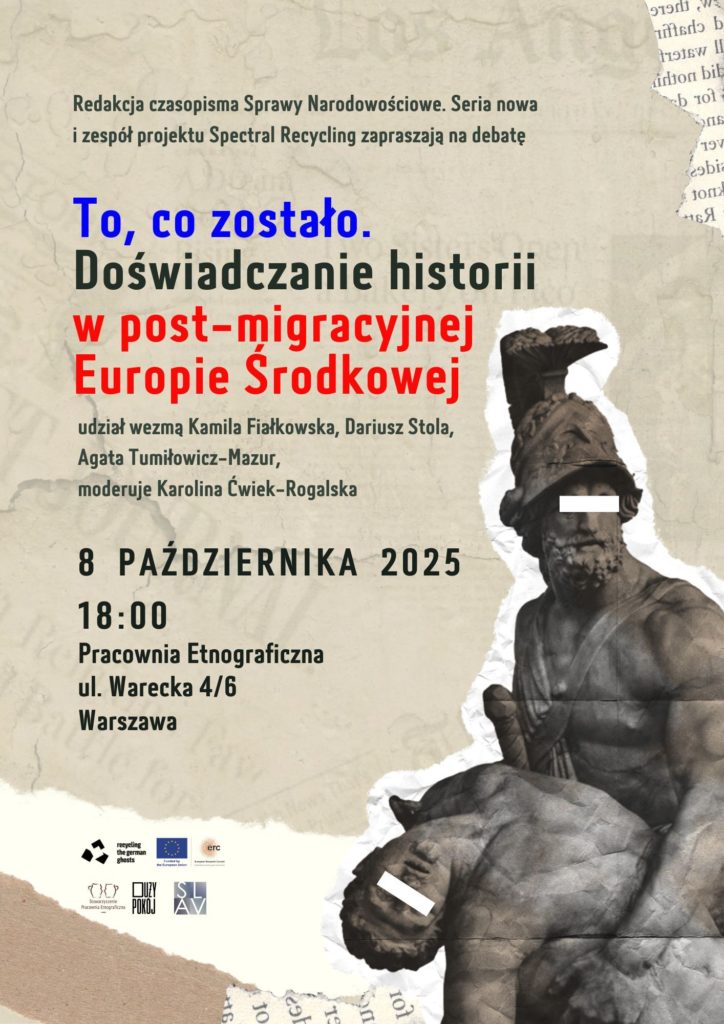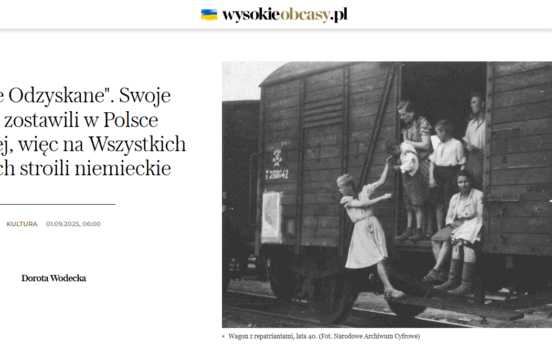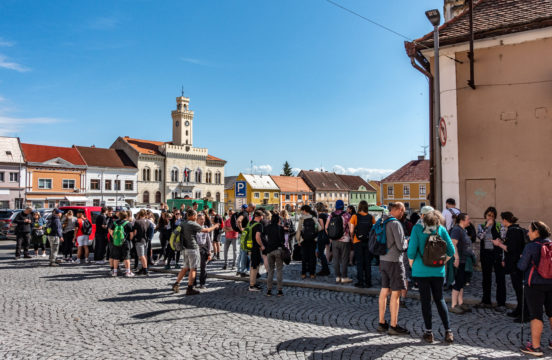On October 8, 2025, the studio “Duży Pokój” hosted a debate titled “What Remains: Experiencing History in Post-Migratory Central Europe.” The discussion was inspired by the latest issue of the journal Sprawy Narodowościowe. Seria nowa, which was edited by Karolina Ćwiek-Rogalska and Michal Korhel (link to the editorial) and focuses on memory, identity, and heritage in regions affected by forced migrations. The issue also includes texts based on research conducted within the ERC Spectral recycling project. Karina Hoření, Magdalena Bubík, and Michal Korhel explored how memory and history are experienced through different lenses: Karina discussed the construction of national identities and ethnic tensions in the First Czechoslovak Republic; Michal examined the role of theater in Slovakia in bringing to life the memory of displaced German communities; Magdalena, in a review, focused on the emotional and historical significance of everyday objects in postwar Polish cities.
The event featured scholars: Kamila Fiałkowska (University of Warsaw), Agata Tumiłowicz-Mazur (New York University), and Dariusz Stola (Institute of Political Studies, Polish Academy of Sciences). The debate was moderated by Karolina Ćwiek-Rogalska, project leader of the ERC StG Spectral Recycling and co-editor-in-chief of Sprawy Narodowościowe.
Participants explored questions about what it means to experience history and what remains with us in everyday life. They reflected on the nature of memory and the complex intertwining of personal biographies with collective history.
We thank everyone for their presence, thoughtful questions, and inspiring conversation!
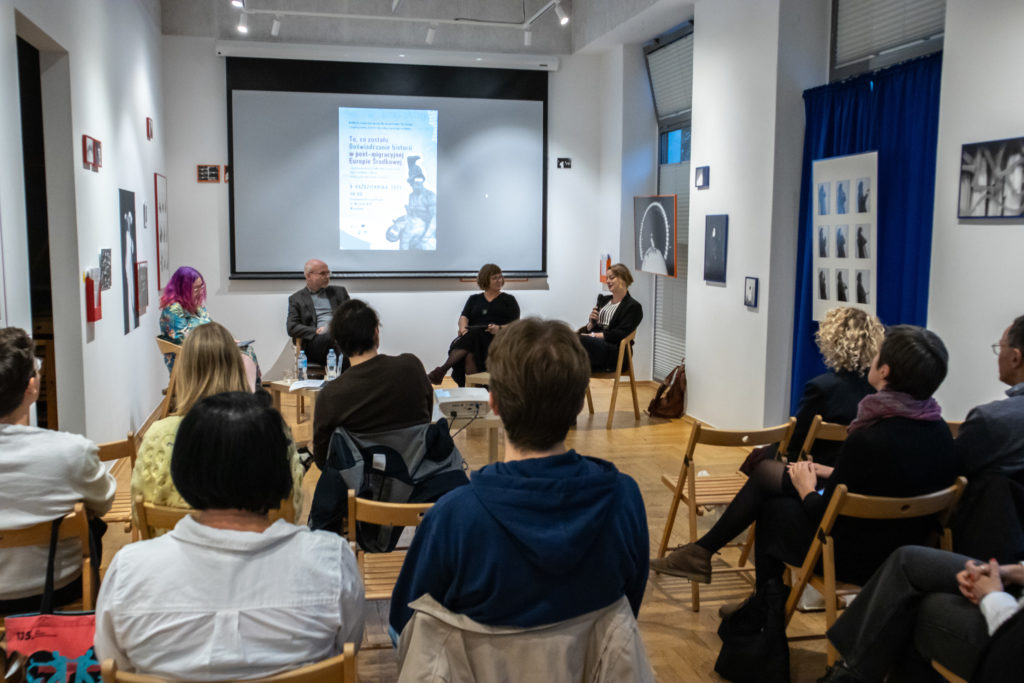
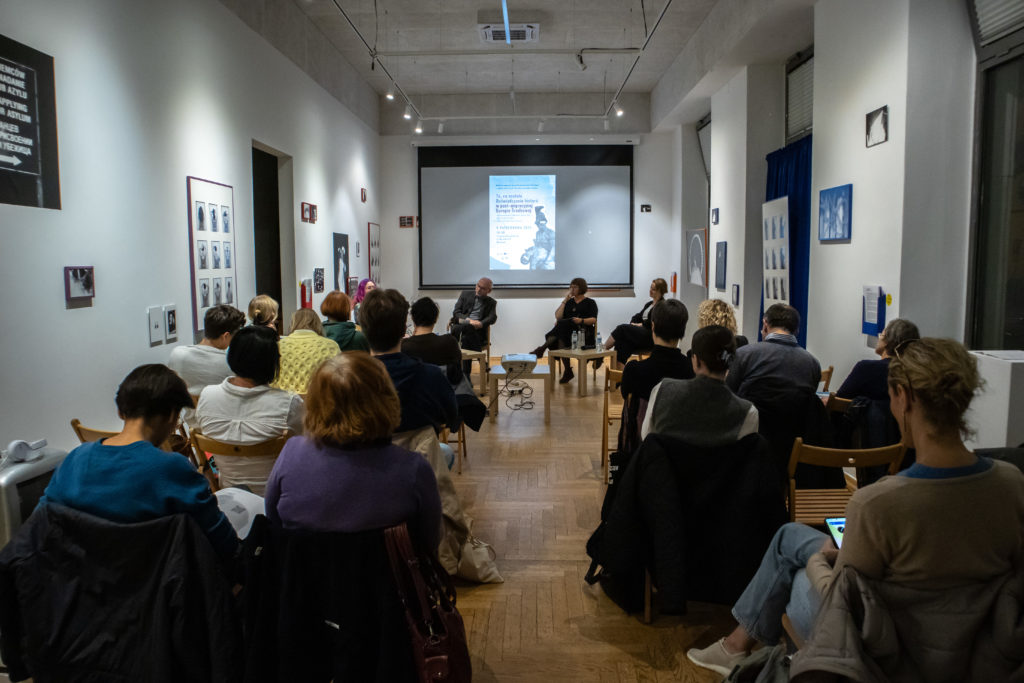
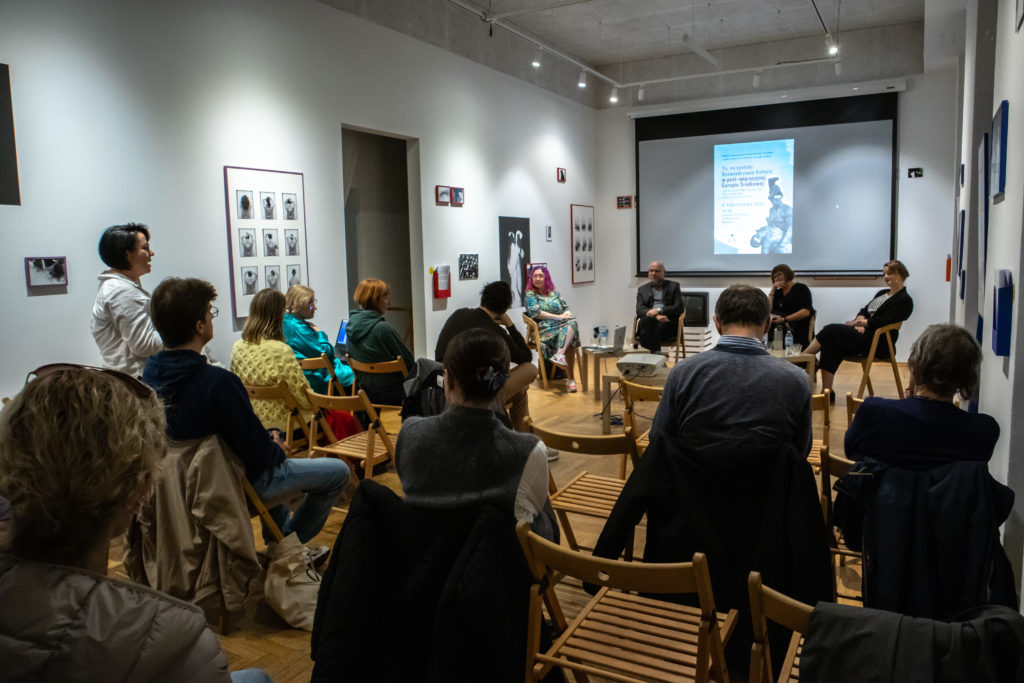
Participants of the event. Photos: Wiktoria Nylec.

